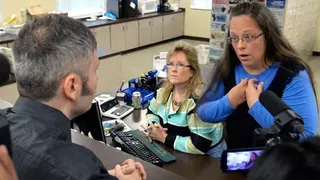March 12, 2015
Seattle Experts Call for End to AIDS-related Fungal Infections
EDGE READ TIME: 2 MIN.
Currently about 1,500,000 people die of AIDS and its complications each year. Many die of fungal infections; how many is not clear because of a lack of access to excellent diagnostic tests.
In Seattle, over 60 experts from major health agencies, including the World Health Organisation, UNAIDS, Bill and Melinda Gates Foundation, Clinton Health Access Initiative, Office for Global AIDS Coordination, Centers for Disease Control The Global Fund, and representatives from over 30 countries gathered to align on efforts to improve management of fungal infections.
"The toll due to fungal diseases is over 1 billion people, yet these diseases are poorly represented by most global health organizations and national public health bodies," said Dr. David Denning, GAFFI President and Professor of Infectious Diseases in Global Health at the University of Manchester. "Burdens vary by geography, country, co-infections, hospital hygiene and agricultural practices. Even though the global antifungal pharmaceutical market is about $8 billion and growing at 2-3 per cent annually, there are a limited number of useful antifungals."
Delegates highlighted the lack of diagnostics and access to treatments, including the oldest antifungal drugs, as major hurdles to improvements in many developing countries.
A key output of the meeting based on a preliminary model created to analyze the costs associated with treatment and care of fungal infections in Africa, showed that early screening and treatment, before meningitis or pneumonia develop, is cost effective. If implemented, this regimen could potentially save nearly $500 million and up to 140,000 lives annually compared with later treatment.
TB is second only to HIV/AIDS as the greatest killer worldwide due to a single infectious agent. A common complication of TB is 'Chronic Pulmonary Aspergillosis' a lung fungal disease that mimics TB, and needs to be treated with antifungal drugs. Diagnosis requires a simple antibody test, which is not available in many countries, especially in Africa.
Incorrect diagnosis and treatment is therefore a common occurrence. An estimated 1,200,000 people suffer from this complication of TB, and most are never diagnosed or treated. GAFFI recently petitioned the WHO to make the key oral drug for this infection, itraconazole, an Essential Medicine.
"Discussions covered so many of the gritty problems facing patients unlucky enough to develop a serious fungal infection. From lack of doctor knowledge, slow or non-existent diagnostics to costly or unavailable generic antifungals, everything was discussed. The time for action and joined up thinking among AIDS and TB policy makers is here," added Denning.
GAFFI is a registered International Foundation based in Geneva, focussed on four major tasks related to serious fungal infections.
These are:
� Universal access to fungal disease diagnostics for serious fungal disease.
� Universal access to generic antifungal agents -- current status by country here:
� Better data on the number and severity of fungal infections.
� Health professional education related to better recognition and care for patients with serious fungal disease.
Stakeholders jointly committed more action.
"Serious attention, study and efforts are needed; more should be done," said Dr. Swarup Sarkar from UNAIDS, during his presentation.
For more information, visit http://www.gaffi.org/





